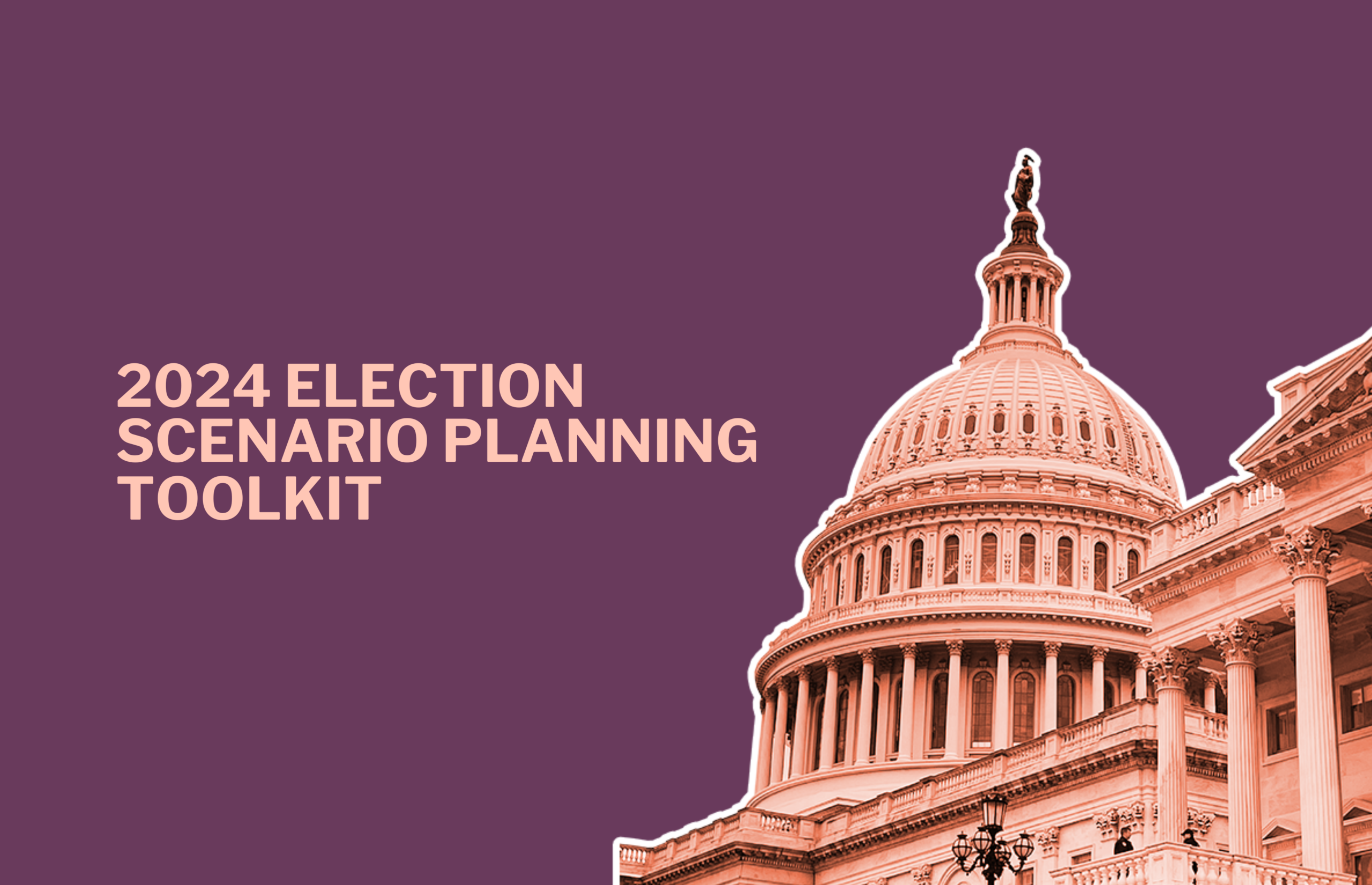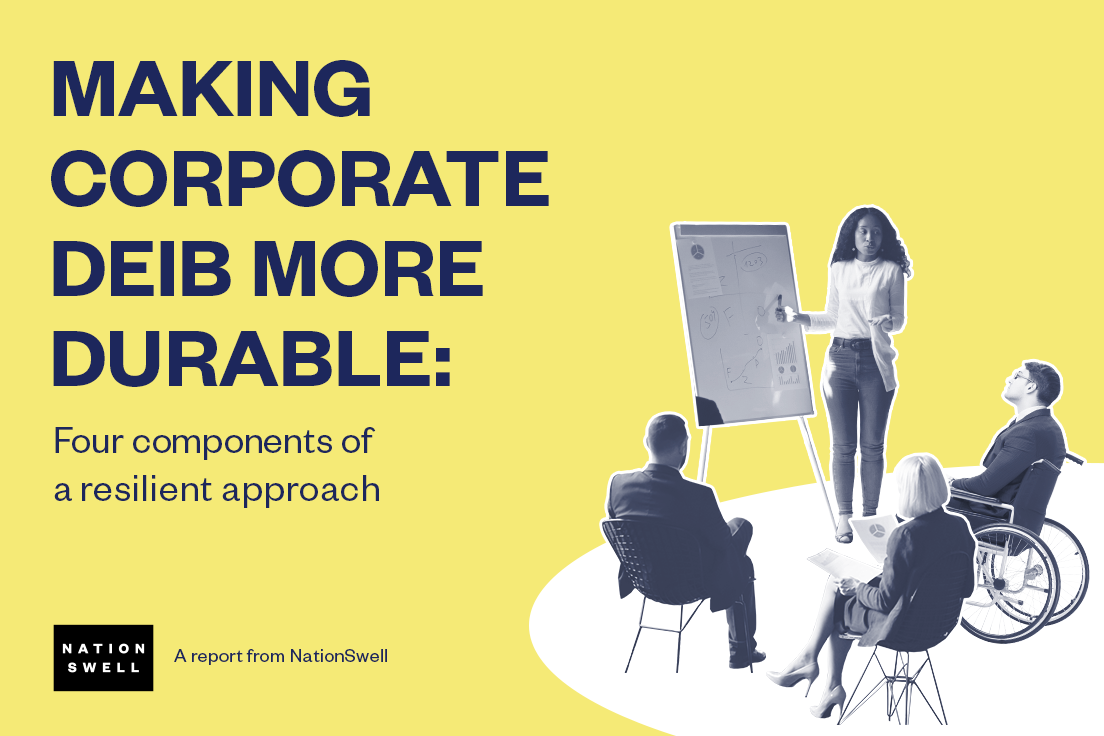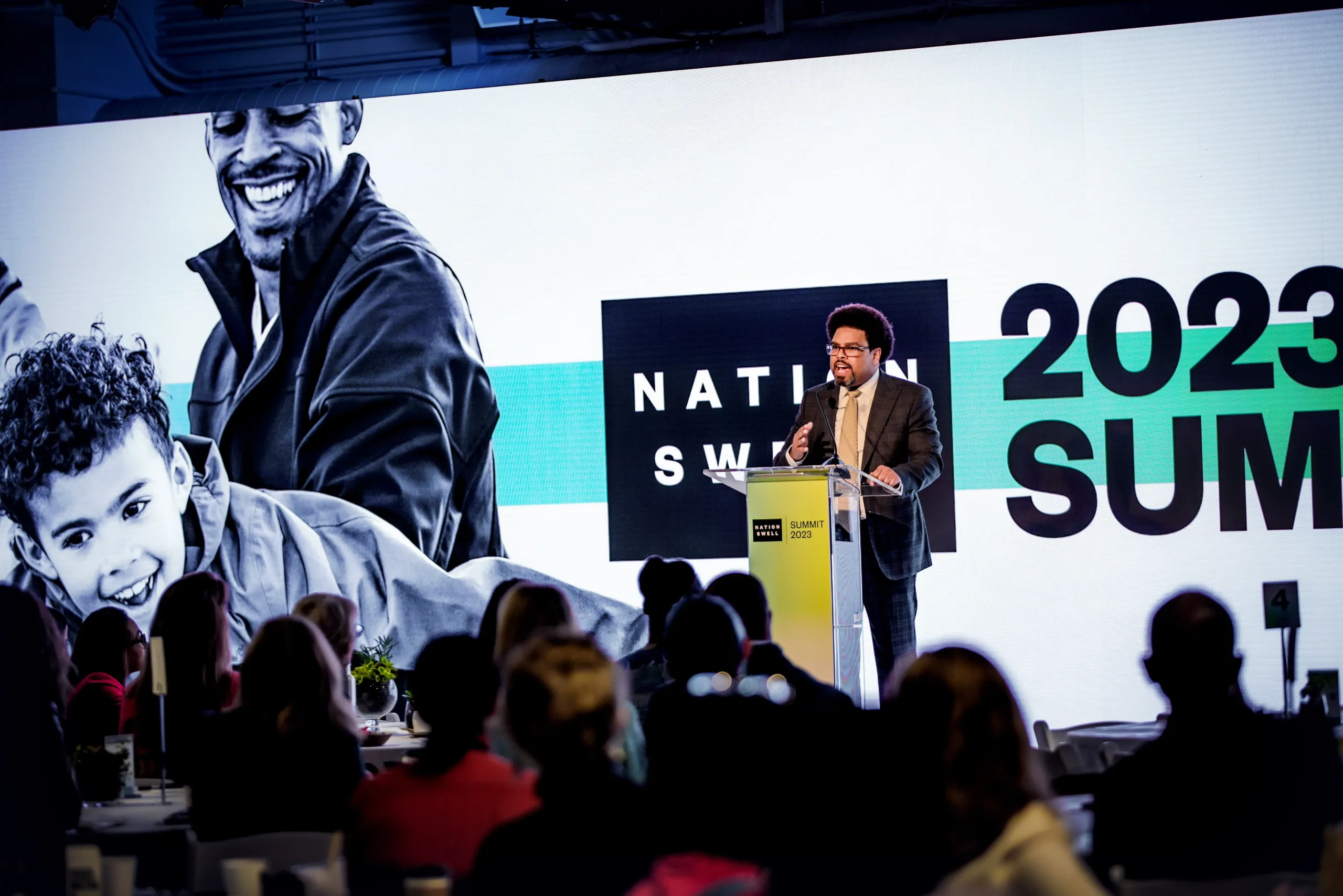2024 Election Scenario Planning Toolkit

In an era marked by sociopolitical uncertainty, businesses and their leaders have a responsibility to their employees, customers, investors, and communities to prepare for a range of plausible impacts that could emerge following the 2024 U.S. general election. Regardless of an organization’s size, sector, or prior engagement in political and social issues, the likelihood is high that electoral outcomes and subsequent societal effects will call upon leaders to make tough calls, negotiate trade offs, and act in response to a range of stakeholder interests. Those leaders will be well-served by the foresight and preparation that scenario planning affords.
NationSwell created this toolkit in an effort to make scenario planning as accessible and effective as possible during election season and beyond. For more comprehensive guidance on the role of business in promoting a healthy democracy, visit our Civics Inc. report.
Who is this for?
The recommended audience for this resource are senior leaders and managers with responsibility over relevant functional areas, including public affairs, communications, social impact, human resources, and legal.
While businesses can and do conduct scenario planning on a large number of topics relevant to their interests, this particular resource focuses on the potential near and mid-term impacts of a U.S. general election on business, free enterprise, and our constitutional republic.
Guidance for use
This resource contains instructions and resources to support election scenario planning exercises. Because there is no one-size-fits-all approach to scenario planning, we advise leaders to review this information and adapt it to the existing practices of their organization. The intent is to make scenario planning as accessible as possible, not to divert organizations away from methods that are already working well.
What’s in the toolkit?
- Section 1: Election scenario planning overview
- Section 2: Election scenario planning preparation and facilitation guide
- Section 3: Election scenarios to consider































